How Cheese Affects Your Blood Sugar Levels

Key Takeaways
From blue to brie, who doesn’t love this dairy product? Whether you prefer soft dessert cheeses with a glass of wine, cream cheeses on your bagel, or hard cheeses on your deli platter, there’s likely at least one type of cheese you’re fond of. In fact, according to several surveys and statistics, Americans are eating more cheese than ever—and the amount of consumption is only going up!
As whole foods, several types of cheese include the same nutrients and health benefits that other dairy products can provide. After all, it’s the coagulation of milk that produces most of the cheeses we love so much. They’re a source of calcium, proteins, potassium, sodium, magnesium, zinc, B vitamins, and many other essential nutrients. All the calcium from the dairy in cheese can impact everything from your bones and teeth health to blood pressure, cholesterol, and the healing of wounds. Some types of cheese can help put you at a lower risk of issues like heart disease, while others can help with bone health.
Of course, like all dairy foods, not all cheese is created equal. Some types of cheese can have too much dairy fat, some can increase your cholesterol levels, and some may not be as good for heart health. It depends on various factors, including how your body handles its dairy intake, the fat content of the cheese in question, your dietary tolerances, and so on. While we can’t cover everything about every type of cheese, here’s a little more about cheese and your health.
Cheese and Your Health

What is cheese, exactly? It’s a dairy product made out of the milk of animals like cows, sheep, goats, and buffalo. According to some estimates, there are over 1,400 varieties of cheese. The varieties depend on the type of milk (whole milk, skim, what sort of animal it comes from, and so on), degree of ripening, the process of milk coagulation, and so on.
During the coagulation or clotting of milk, certain bacteria ferment the lactose, which is the milk sugar, producing lactic acid. Lactic acid then coagulates the milk proteins, called caseins, by trapping the fat. You can think of the process as a type of curdling of the milk that’s done on purpose.
The degradation of proteins in cheese-making starts when certain enzymes (from unadulterated milk, bacterial contamination, or are produced in laboratories) are introduced in milk. The fermentation of lactose into lactic acid is done with the help of starter bacteria. These enzymes produce casein after a starter culture is added to the milk to lower the pH.
The next step is the aging process. The more time a cheese is left to age, the less lactose it will contain—the lactose converts into lactic acid. This aging process increases the levels of probiotics in the cheese, which makes it one of the best foods for the immune system.
Can Eating Cheese be Healthy?

If you can tolerate dairy products, they can be some of the best sources of calcium, proteins, and other nutrients. Milk also contains all nine essential amino acids that your body cannot produce on its own. These amino acids can combine and form protein chains. They can be divided into two main groups: casein, which coagulates and forms cheese, and whey protein.
The most common type of fat found in cheese is saturated fat. So even with all the benefits, remember that some cheeses are a high-fat, high cholesterol option and may not be the healthiest addition to your diet. Cheese contains ten times more fat than milk, with 65 percent of saturated fats. However, the linoleic acid present in milk is a trans-fatty acid that has some health benefits. It has anticarcinogenic properties, promotes muscle growth, and may also have some anti-diabetic properties.
Another component of milk is lactose, the milk sugar. The lactic acid bacteria break lactose down into glucose and galactose to use as an energy source.
Some types of cheese, like mozzarella, cheddar cheese, and cottage cheese, also contain probiotics. These can support gut health and improve digestion in some people.
More About Cheese and Healthy Eating

In moderation, and if your body responds well to it, cheese can be a great option with various health benefits. It may improve bone health, prevent blood clotting, and reduce the risk of cardiovascular diseases. Cheese also raises the pH levels in dental plaque, which can help prevent cavities.
And some types of cheese may even help with your weight loss efforts! Yes, you can add certain low-fat cheeses to your diet to help manage your weight and provide you with all those great nutrients we mentioned earlier.
Popular low-fat cheeses include cottage cheese, ricotta cheese, parmesan, feta, and goat cheese. Certain types of cheese also contain omega-3 fatty acids, which may help improve your cardiovascular system and nervous system, which manages brain function.
A Note of Caution
So, it’s safe to say cheese isn’t bad for everyone, and introducing dairy products into your diet can benefit some people. However, before you load up on cheese, remember that, as with anything, there are some drawbacks too. Cheese can also be a high-calorie food, and some cheeses contain high amounts of sodium and saturated fats. So the type of cheese (and the amount) you should consume as part of a healthy diet is something to consider.
Why is any of this important? Well, for one thing, a diet that’s rich in sodium and saturated fats can lead to high blood pressure, obesity, and an increased risk of heart disease and type 2 diabetes.
Some suggestions recommend limiting your intake of saturated fats to less than 10 percent of your total daily calorie count. For example, if your diet consists of 2,000 calories per day, you should consume less than 20 grams of saturated fats.
Of course, this will differ from person to person, so ask a healthcare professional or registered dietitian to help you find the right amount for your specific needs. Another downside of cheese consumption is that many people are intolerant or allergic to lactose.
Cheese and Blood Sugar
As we mentioned before, cheese proteins are divided into two categories: caseins and whey proteins. Whey protein in isolation can stimulate insulin secretion, which prevents the rise of blood glucose levels. However, because cheese also contains high levels of saturated fatty acid, it can impact your cholesterol, blood pressure, and risk of associated diseases. If consumed in excess, saturated fats can also affect insulin sensitivity, leading to an increased risk of diabetes.
Like all foods, cheese has a glycemic index based on how quickly the body can digest carbs, which impacts blood sugar. Remember, since most cheeses are lower in carbohydrate content, they’re likely also lower in glycemic index. Here too, how it affects your system will depend on your body. It’s a good idea to track and monitor your daily dairy intake with the help of a tool like a continuous glucose monitor and guidance from a registered dietitian.
Our Favorite Types of Cheese and Their Health Benefits

Now that you know a good amount about cheese and its health benefits, we’re sure you’re looking forward to adding some of this delicious food to your shopping cart. Remember that moderation is key to a healthy diet, but don’t make drastic changes without consulting a healthcare professional.
There are so many types of cheese to pick from; how do you decide what to get? Some of the most popular varieties include mozzarella, feta, cottage cheese, goat cheese, ricotta, Swiss cheese, cheddar, gouda, parmesan, blue cheese, and brie. Here’s a list of some of our favorites and a little more about their nutritional content.
Mozzarella Cheese
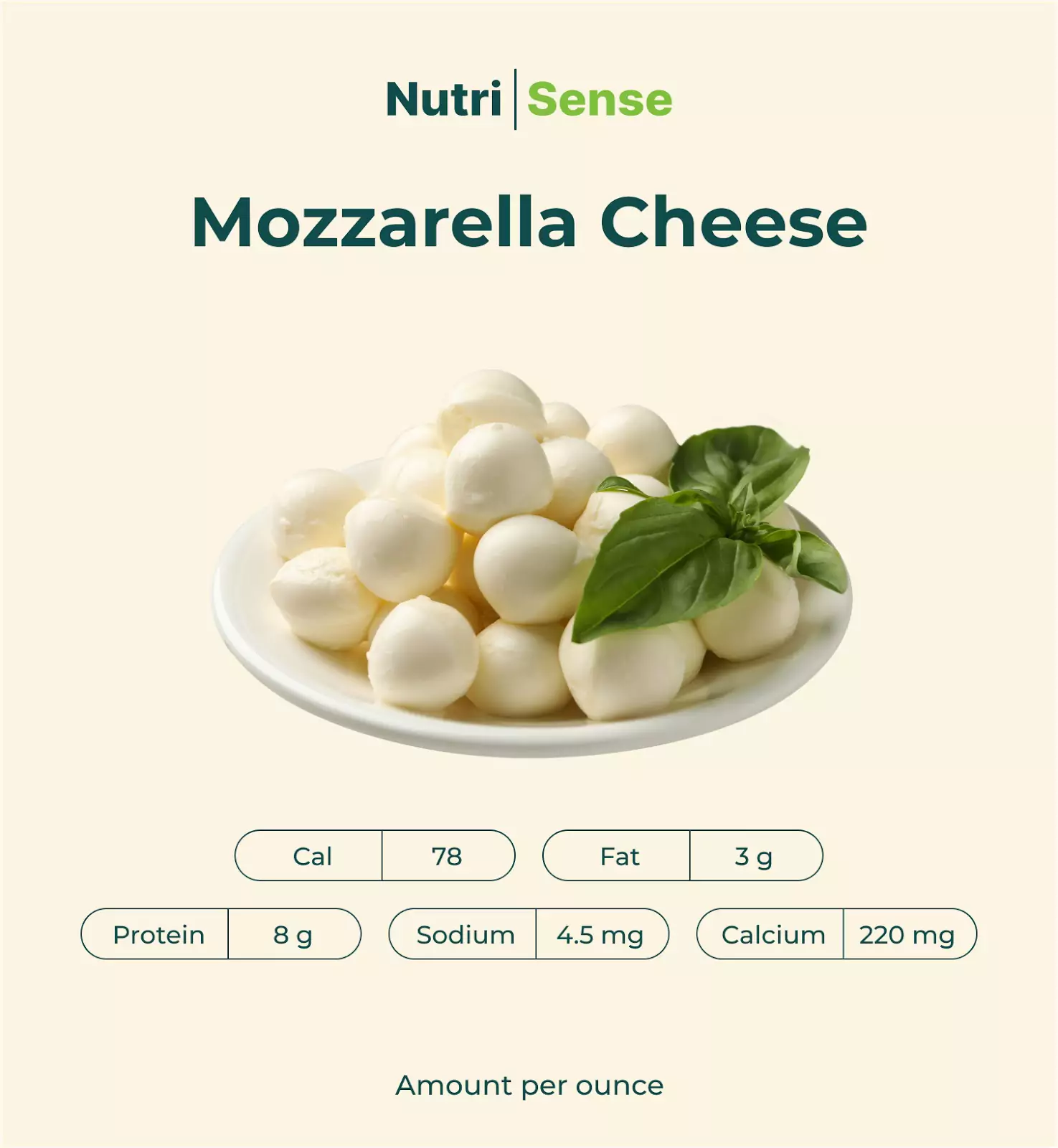
Americans love mozzarella—no, really! It’s America’s most popular cheese and one of our favorites too. The soft cheese is low-calorie, has a low amount of saturated fats, and is made from buffalo or cow’s milk. It also contains essential probiotics that help strengthen immunity and prevent infections.
Feta Cheese

Feta is a type of cheese made from goat’s or sheep’s milk. It contains little to no casein, making it an excellent choice for lactose-intolerant people. It’s also rich in phosphorus and calcium, low in calories, and high in sodium.
Cottage Cheese

Cottage cheese is a great low-fat source of protein, perfect for managing your weight. It’s also rich in B vitamins, which keep your cells and organs healthy.
Cheddar Cheese

Cheddar cheese is a type of naturally aged cheese, perfect for those sensitive to lactose, as it contains little to none of it. It’s rich in calcium, fat, calories, and sodium, so even though it’s delicious, you may want to consume this in moderation. However, cheddar is also rich in essential vitamins and minerals, especially vitamin K, which may help prevent heart disease.
Ricotta Cheese
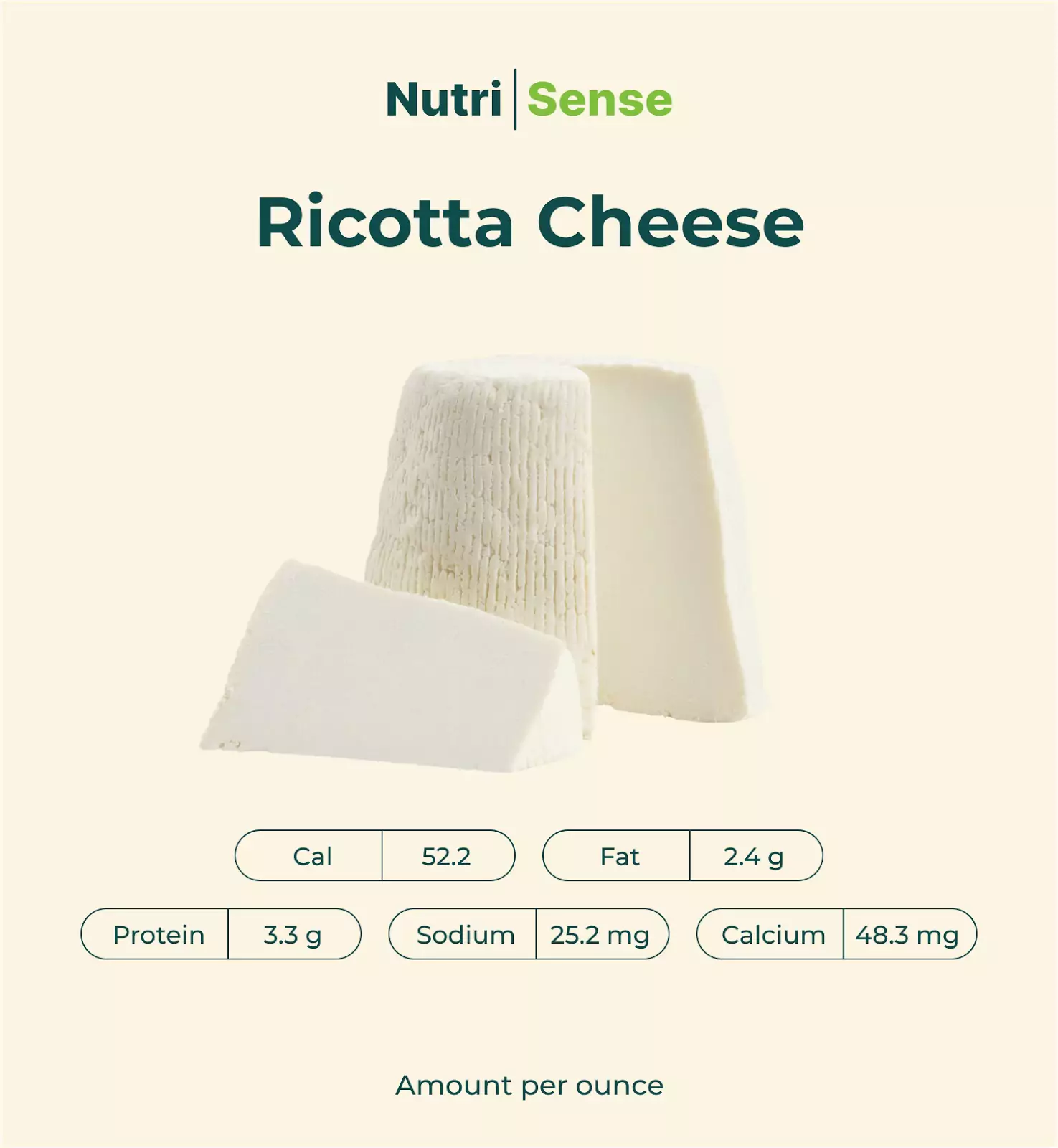
Ricotta cheese is a low-calorie cheese that contains a significant amount of whey protein, which helps strengthen muscles. Whey protein also reduces cholesterol levels and can have some cancer-preventing properties.
Swiss Cheese

Swiss cheese is one of the most popular types of cheese. Its signature holes are created by gas bubbles during the fermentation process. The low-calorie food also contains a low amount of sodium and fat. It also contains lactic acid bacteria, which help prevent diseases, infection, and inflammation.
Goat Cheese

Goat cheese is made with—no surprises here—goat milk! We think it’s delicious, but it can be an acquired taste for some, as it has a pretty specific smell and taste. This soft cheese is relatively high in fat and rich in vitamin A. And it contains beneficial bacteria that protect the gut and improve digestion.
Gouda Cheese
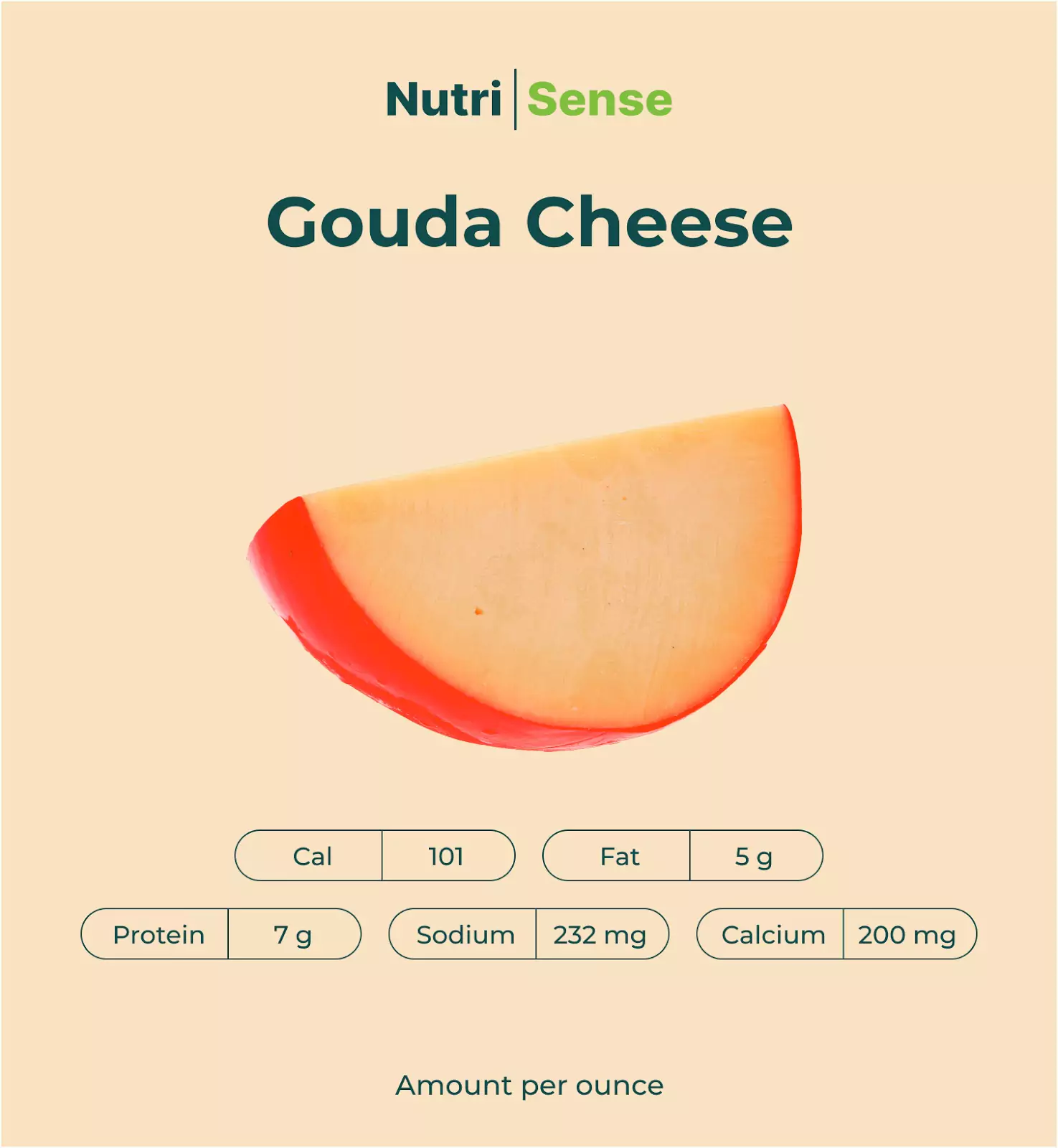
Gouda is a cheese made with unpasteurized milk with a specific sweet and nutty taste. It is an excellent source of probiotics, which promote healthy digestion and strong immunity.
Parmesan Cheese
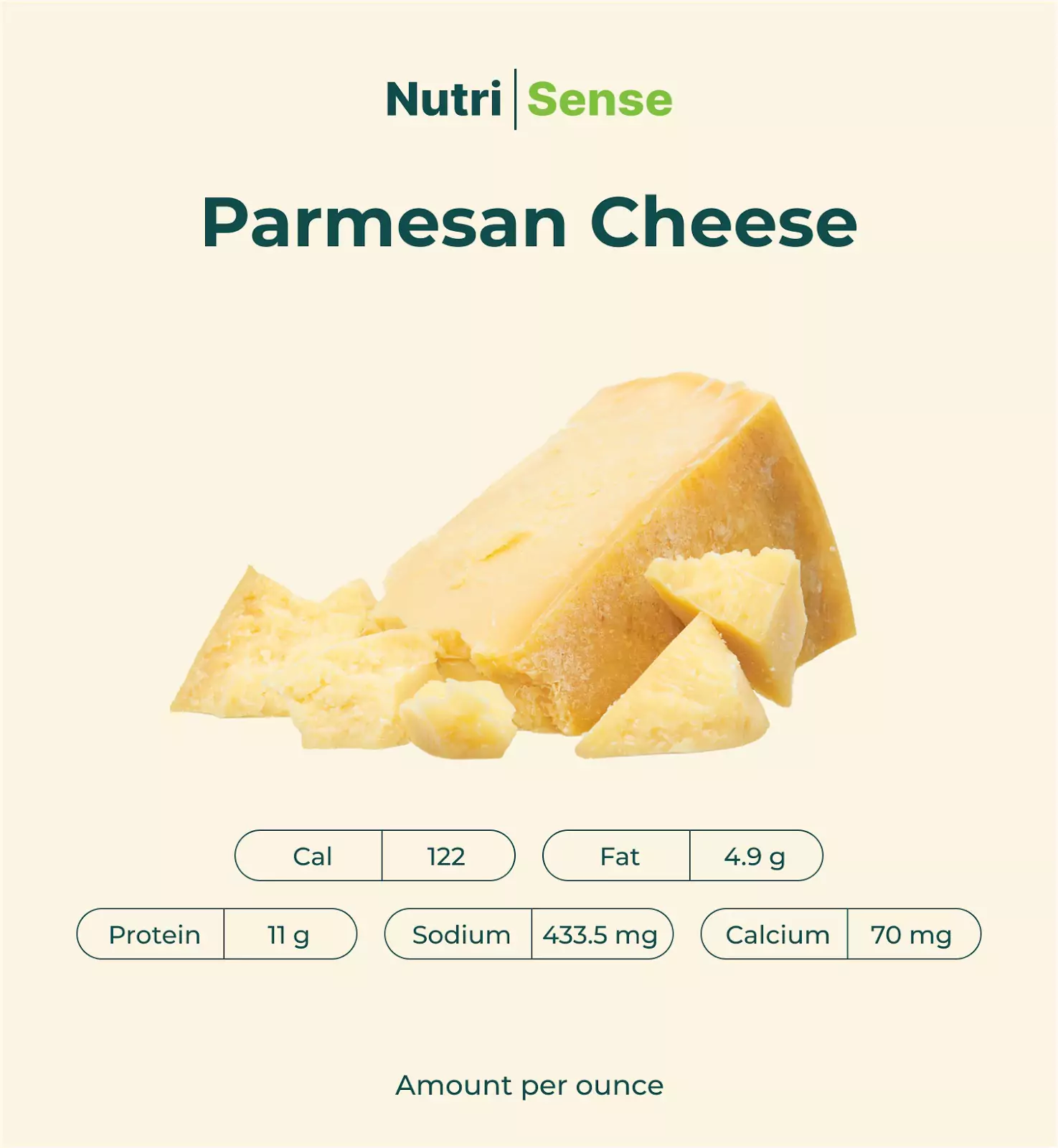
Parmesan is another type of aged cheese, usually consumed in small amounts. It contains proteins and calcium and may also be a good option if you’re lactose-intolerant.
Quark Cheese
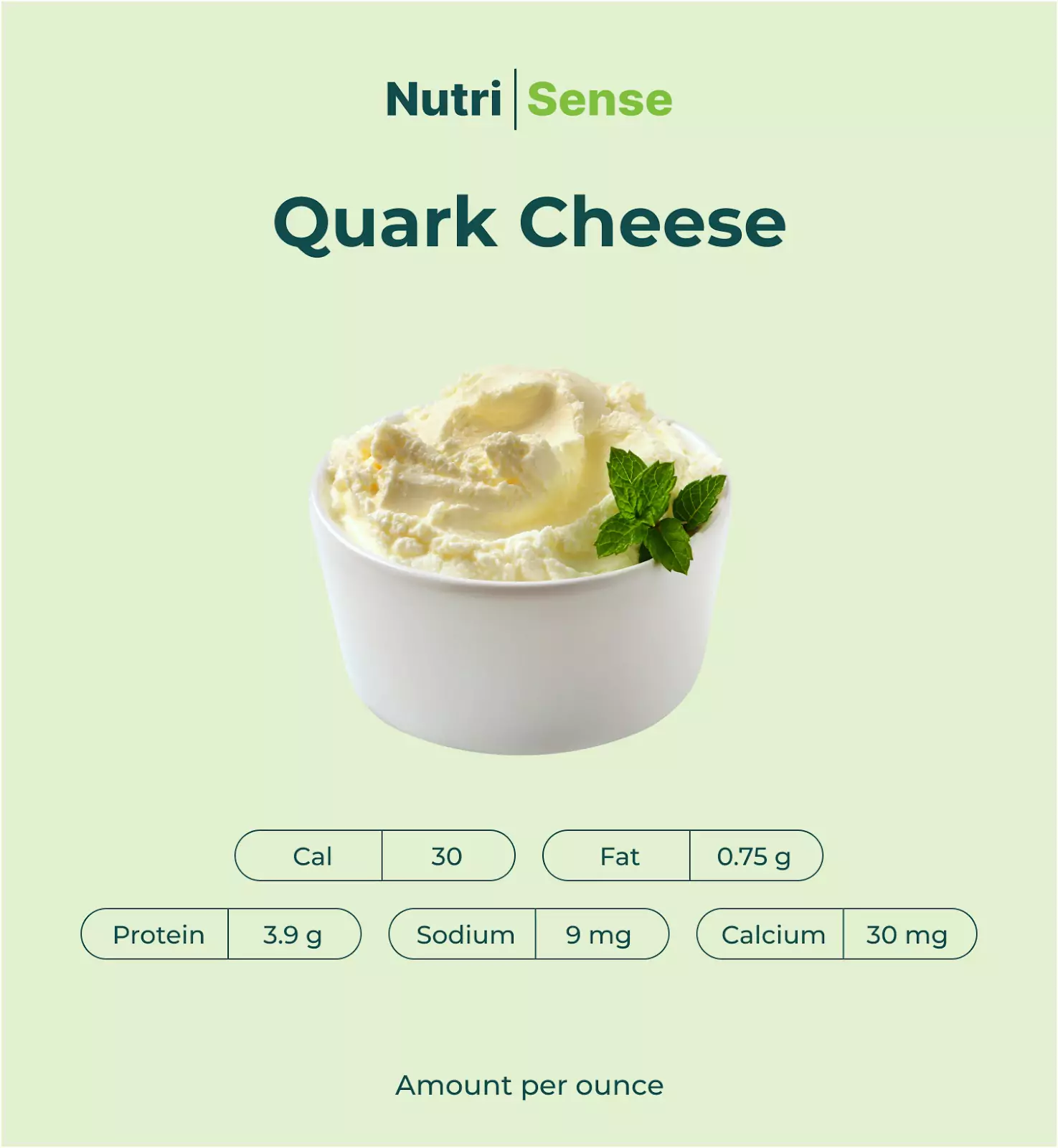
Quark cheese isn’t well-known, but we’re big fans, so you may want to consider adding it to your grocery list. It looks like cottage cheese, but it has a creamier texture. It’s full of probiotics and high in proteins, but it’s also high in carbs.
As you can see, cheese isn’t all bad after all! In fact, it even has some health benefits, and with all the proteins, calcium, sodium, fats, and probiotics, it can be an excellent addition to your diet. Of course, it can impact your blood glucose and cholesterol levels, so it’s best to consume it in moderation.
Find the right Nutrisense programto turn insight into progress.
Go Beyond Glucose Data with Nutrisense
Your glucose can significantly impact how your body feels and functions. That’s why stable levels are an important factor in supporting overall wellbeing. But viewing glucose isn't enough. Nutrisense, you’ll be able to learn how to use your body's data to make informed lifestyle choices that support healthy living.
One-to-one coaching
Sign up to access insurance-covered video calls to work with a glucose expert: a personal registered dietitian or certified nutritionist who will help tailor your lifestyle and diet to your goals.
Monitor and measure what matters
With the Nutrisense CGM Program, you can monitor your glucose with health tech like glucose biosensors and continuous glucose monitor (CGM)s, and analyze the trends over time with the Nutrisense App. This will help you make the most informed choices about the foods you consume and their impact on your health.
Find your best fit
Ready to take the first step? Start with our quiz to find the right Nutrisense program to help you take control.

Katie is a dietitian at Nutrisense. With over 11 years of experience as a dietitian in many areas of nutrition, Katie has worked as a clinical dietitian within a hospital, as well as in the fields of diabetes, sports and performance nutrition, recovery from addiction, and general wellness. She’s also an athlete and has run 8 marathons, including the Boston Marathon.




